Search Results
Showing results 41 to 60 of 170
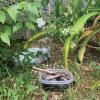
Build A Bee Bath
Source Institutions
In this activity, learners use found natural materials to create a water haven for bees and other insects.
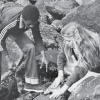
Rock Pioneers
Source Institutions
In this outdoor activity/field trip, learners investigate organisms that live along the ocean's rocky coast.
Glowing Tonic
Source Institutions
In this sunny day activity, learners compare how a cup of water and a cup of tonic water reflect or refract light in the sun.
Magnus Glider
Source Institutions
A design challenge that takes paper airplanes into an entirely different direction: a magnus glider uses cups and and rubber bands to create a glider that uses the same forces that a curveball (from b

Olympic Track Meet
Source Institutions
In this activity, learners discover how exercise helps keep the body healthy. Learners increase their heart rates by running and understand how running fast versus walking affects their pulse rates.
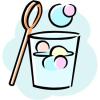
Why Are Bubbles So Colorful?
Source Institutions
In this activity, learners explore why they can see colors in bubbles and why they change.
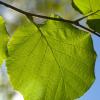
Leaf Me Alone
Source Institutions
In this activity, learners explore the structure of plant leaves. Learners find out what happens when they coat either the top or bottom sides of leaves with petroleum jelly.
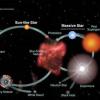
Supernovae in the Lives of Stars
Source Institutions
Many people think the different stages in the life of a star are actually different types of stars, rather than just stages in the life of a single star.
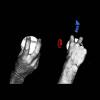
Thrown For A Curve: Pitch Like A Big Leaguer
Source Institutions
You may have tried to throw a curveball or a slider, or even a screwball, with an ordinary baseball and found it difficult to do.
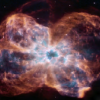
Telescope Treasure Hunt
Source Institutions
This hands-on astronomy activity lets learners hunt for different objects in the night sky that contribute to stellar and planetary formation, using a Treasure List.
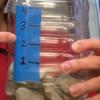
Homemade Rain Gauge
Source Institutions
In this activity, learners will build rainwater collectors to practice meteorology in their own backyard. Collect and analyze data to determine how much rainfall you get in a set period of time.
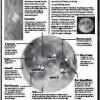
Observing the Moon
Source Institutions
Use this Moon Map Guide to help learners identify features on the Moon, while looking through a telescope.
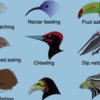
Bird Watch
Source Institutions
In this group or individual activity, learners are encouraged to watch birds near home or school—possibly where birds are nesting in a tree, pecking in a park, feeding from a feeder, or flying through
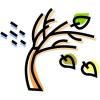
Where Does the Wind Blow?
Source Institutions
In this activity, learners investigate wind by comparing the force of wind in different locations. Learners build wind-o-meters out of wooden sticks and strips of paper.
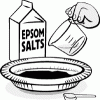
Crystal Creations: Grow Spikes of Crystals in the Sun
Source Institutions
This activity shows you how to make amazing crystal spikes using Epsom salt and the sun.
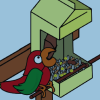
Bird Feeders
Source Institutions
In this activity, learners build a bird feeder or feeders to attract birds for observation.
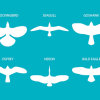
Control a Bird’s Flight
Source Institutions
In this engineering design challenge, learners make a bird and then control its flight with attached strings.
Press Seaweed
Source Institutions
In this activity, learners will collect, dry and press seaweed over the course of four days in a similar way that artists/crafters press flowers.
More Bubbles!
Source Institutions
In this math activity, learners make their own bubble wands and determine if the size of the wand affects the number of bubbles it produces.
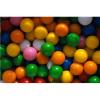
Make a Green Gumball Black
Source Institutions
In this optics activity, learners use a shoebox, colored cellophane and sunlight to "change" the colors of gumballs. Learners will be surprised when the green and blue gumballs appear black!
